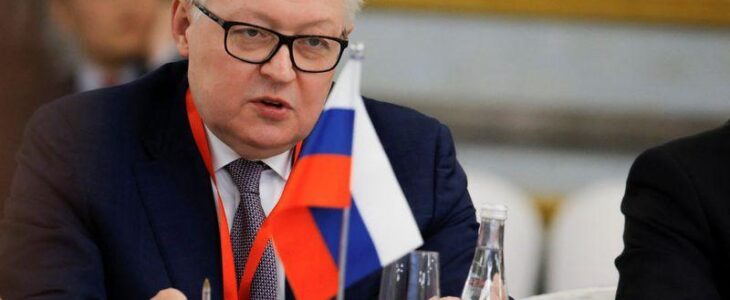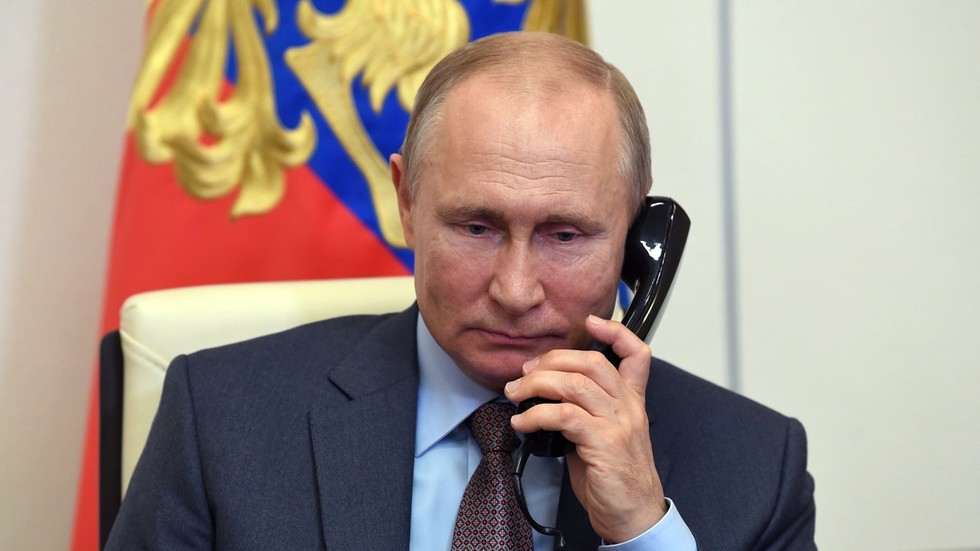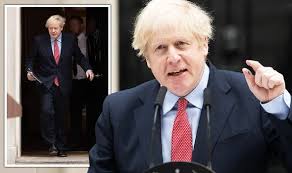
Russia said on Monday it may be forced to deploy intermediate-range nuclear missiles in Europe in response to what it sees as NATO’s plans to do the same.
Deputy Foreign Minister Sergei Ryabkov told Russia’s RIA news agency in an interview that Moscow would have to take the step if NATO refused to engage with it on preventing such an escalation.

His comments further raised the stakes in an East-West standoff in which Russia is demanding security guarantees from the West while the United States and its allies are warning Moscow to pull back from what they see as a possible invasion of Ukraine – something Ryabkov again denied was Russia’s intent.
Intermediate-range nuclear forces (INF) in Europe were banned under a 1987 treaty agreed between Soviet leader Mikhail Gorbachev and U.S. President Ronald Reagan in what was hailed at the time as a major easing of Cold War tensions. Washington quit the pact in 2019 after complaining for years of alleged Russian violations.

Ryabkov said there were “indirect indications” that NATO was moving closer to re-deploying INF, including its restoration last month of the 56th Artillery Command which operated nuclear-capable Pershing missiles during the Cold War.
‘COMPLETE LACK OF TRUST’
“Lack of progress towards a political and diplomatic solution to this problem will lead to our response being of a military and technical military nature,” he said.
“That is, it will be a confrontation, this will the next round, the appearance of such resources on our side. Right now there aren’t any, we have a unilateral moratorium. We call for NATO and the U.S. to join this moratorium.”
NATO says there will be no new U.S. missiles in Europe and it is ready to deter new Russian missiles with a “measured” response that would only involve conventional weapons.
But Ryabkov said Russia had a “complete lack of trust” in NATO.
“They don’t permit themselves to do anything that could somehow increase our security – they believe they can act as they need, to their advantage, and we simply have to swallow all this and deal with it. This is not going to continue.”
Russian President Vladimir Putin and U.S. President Joe Biden held two hours of talks last week on the Ukraine crisis and Moscow’s demand for what it calls legally binding security guarantees from the West.
Ryabkov said Russia would present its follow-up proposals to the United States, and possibly also to other NATO countries, in the coming weeks. Putin’s spokesman, however, said he expected the Russian ideas to be presented this week.
Credit: Yahoo News
Putin outlines Russian view on NATO expansion to British PM


There’s an urgent need for talks to stop NATO’s eastward expansion and prevent the bloc’s deployment of offensive weapons, Russian President Vladimir Putin has told British leader Boris Johnson, citing the situation in Ukraine.
The call between the two leaders took place on Monday, a week after Moscow floated the notion of a legally binding treaty offering firm guarantees that NATO would not expand any further east, or place offensive weapons in member countries bordering Russia. Putin informed Johnson that Russia was preparing draft documents to that effect already, and that negotiations needed to begin “immediately.”
Pointing out that Johnson had brought up the issue of an “alleged large-scale movement of Russian troops along the Ukrainian borders,” the Kremlin’s readout of the call noted how Putin had responded with “specific examples of Kiev’s destructive line on the disruption of the Minsk agreements,” which the Russian leader called “an uncontested basis for resolving the internal Ukrainian crisis.”
The Ukrainian authorities are “purposefully exacerbating” the situation in the two breakaway regions in the east, using heavy weapons and attack drones, while discriminating against the Russian-speaking population in Ukraine, he added.
His comments came after Deputy Foreign Minister Sergey Ryabkov said NATO would face “dire consequences” if it continued to threaten Russian security.
“Lack of progress towards a political and diplomatic solution to this problem will lead to our response being military and technological,” Ryabkov told the newspaper Izvestiya in an interview published on Monday.
The readout provided by 10 Downing Street said Johnson had “reiterated the importance of working through diplomatic channels to de-escalate tensions and identify durable solutions.” The British PM had also “emphasized the UK’s commitment to Ukraine’s territorial integrity and sovereignty, and warned that any destabilizing action would be a strategic mistake that would have significant consequences,” it said.
Credit: RT News
